13/12/2014
Igor Strelkov, Interview to PolitNavigator.
Igor Strelkov, interview to PolitNavigator / 01-12-2014.
http://www.politnavigator.net/
English translation by Kazzura.
https://www.youtube.com/user/wintersodomy
http://wintersodom.tumblr.com/
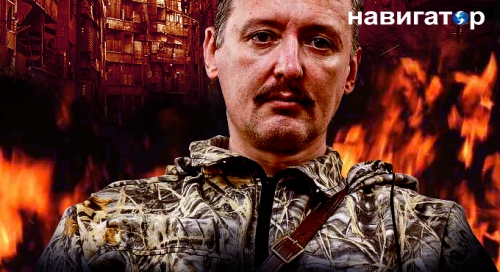
Alexandr Chalenko: As far as I know, steppe and thermal-vision devices have made light weapons fights impossible in Novorossia. Because of that the parties can’t get close to each other, so this war is the war of artillery. What’s your opinion about it.
Igor Strelkov: The terrain beyond the urban agglomerations, which are so numerous in Donetsk Republic, is very indented: lots of ravines, heights, tree belts, lows grown with bushes. Lots of mines and waste heaps, which make the area closed.
Now it’s a positional warfare, where there is almost no skirmishes with gunfire, it’s an artillery war.
Alexandr Chalenko: I’ve been told that it’s war in the urban agglomeration, because in the heart of Donbass, leaving one town you etner into another one right away. And there’s civilian population living there…
Igor Strelkov: …understand it, war is war. Population suffered and suffers while the war rages, so the sooner the victory is achieved and the war stops, the sooner civilian population suffering stops.
As for the rest: small group tactics.
Alexandr Chalenko: What does it mean? Explain, please.
Igor Strelkov: See, in war history, in war theory, there’s such concept as basic tactical unit, that has to fulfill certain tactical tasks. The more military craft develops, the more combat vehicles are improved, the bigger grows the units’ firepower, the lesser get the tactical units.
Relatively speaking, if one task could be solved by the battalion with its firepower druing the WWI, the same task could be solved by companies during the WWII. Now similar tasks can be solved by mere platoons
In this case, the number of armament and its quality, for example, firing rate, became such, that fire density provided by modern platoon, surpasses or at least is equal to one, that battalion of the WWI could provide
Hence, the large masses of people turn into large targets, basically, that’s what has been shown by the UAF around Slavyansk and Donetsk, when having great numerical superiority and way better equipment Ukrainian troops were helpless before us and suffered heavy losses. Due to their crowdness, because they used to move in large masses, large masses of vehicles, and we have been using it. We used the small group tactics — units up to a platoon or less in numbers. They searched for an enemy, pinned it down and called our artillery, mortar strikes upon it. Because of that enemy suffered very heavy losses comparing to our relatively small casualties.
At the same time, the lesser unit is, the harder it’s to hit it, especially in conditions of suburban and urban areas. Enemy had enormous advantage in vehicles, but he couldn’t implement it, since it was like shooting sparrows with a cannon. It’s useless to use the division of “Grads” against the dispersed infantry team. Maybe someone will get hit, but anyway the efficiency would be really low
Alexandr Chalenko: For example now they can’t take the airport in Donetsk. What’s the problem? Why the fights take so long? What would Igor Strelkov do to take the airport under his control completely?
Igor Strelkov: I wouldn’t storm it at all
Alexandr Chalenko: Why?
Igor Strelkov: What for?
Alexandr Chalenko: Because it was believed before the militias started taking it under their control, that Donetsk had been shelled from the airport territory as well as from Peski and Avdeyevka.
Igor Strelkov: Do you imagine the map for yourself? When you manipulate with such names like Avdeyevka, Peski, airport, you don’t imagine yourselve the connection. Adveyevka is a rather large town with 50 thousand population. Peski’s also a rather big settlement. It’s urban type settlement which is abutting to the city. Airport is located between them on a rather large distance. It’s not a single agglomeration.
Artillery can’t be at the airport, Peski and Avdeyevka at the same time. It’s either in one place or in the onether.
Alexandr Chalenko: So were there any artillery in the airport?
Igor Strelkov: There were artillery spotters there. Indeed, artillery was deployed in Peski and in Avdeyevka. The thing is that, to take the airport, you should simply eliminate this artillery. Object for the assault has been chosen formally by people, who don’t understand a thing in the military art, it was a strike against the consequence, not the reason. To take the airport they had to eliminate the reason, destroy the artillery positions in Peski and Avdeyevka beforehand. Then airport could be taken without any problems.
And now, we have a situation when all infantry attacks at the airport are being repelled by the barrage of artillery that is out of reach.
Alexandr Chalenko: Okay, why it wasn’t clear to those, who had been planning these operations?
Igor Strelkov: Let’s say that these people don’t differ from you in the level of military knowledge and operation planning much.
Alexandr Chalenko: And Motorola?
Igor Strelkov: Motorola is good soldier, brilliant commander on the platoon level. He fulfills the tasks give to him. In this case we’re dealing with strategic decision, with those, who have thrown Motorola and Givi to fight in the airport to take which, was determined as the priority objective. I don’t know who made such decision. I was absent at that time. It was clear for me that it’s not a proper object from the beginning. Attack at the airport is not only unnecessary, it’s harmful, since the best units for the former Slavyansk brigade got scratched and suffered losses there. Without any sense.
See, once they launch an attack, enemy calls the artillery strike.
Alexandr Chalenko: Do I get it right, that this task is possible to be solved?
Igor Strelkov: Yes it is, but not with the forces of infantry units. They have to act with the support of armored vehicles, but since all the vehicles of Slavyansk brigade have been taken to “Oplot” by Zakharchenko, he decides what to do with them.
Alexandr Chalenko: Many of your critics say that Strelkov — is just a mere FSB lt. colonel, so he has no experience of army operations planning. What can you say about it?
Igor Strelkov: Indeed, I’m an FSB colonel, so I’m fine about it, but generally, I wouldn’t advise to call a military with the rank 1 step lower that he is. For the military, ranks have greater value than for civilians. Basically that’s what military hierarchy is built on.
Of course it was difficult for me to command units and subunits, when army grew there were several thousand men in it, and front has been stretched for dozens of kilometers. Naturally we couldn’t create a solid frontline with such small forces.
Alexandr Chalenko: Do you have an army experience of leading such units?
Igor Strelkov: I don’t have such experience, I had experience as a commander of small units, but happened to plan the special operations for 80-100 men. I used to be an operative in field of anti-terrorist operations in Chechnya. I happened to take part in many operations, but to command directly — no. Maximum that I happened to command before were joint operative group of 150 men, for a couple of months in 2005.
And again, units didn’t subordinate to me directly, it was only an operative subordination. I only gave them tasks, which they planned and executed on their own. Now, often, I didn’t understand completely how to organize a certain operation, but instead I had a clear and strict understanding of what I wanted to achieve in this operation.
So, I set the tasks and goals, that had been achievable and they were achieved. Thanks to that, we practically succeeded all enemy plans that were aimed to encircle and eliminate us.
I really lacked the chief of the staff, who could explain what I wanted to soldiers in detail. Basically, all army commanders of high ranks are divided into two categories: chiefs and chiefs of staff. Commander makes a decision, chief of the staff develops it, divides into subtasks. Both job is completely necessary. Far not always good chief of the staff is able to command troops well. And vice versa. For example, it was told about Zhukov in one of his characteristics, that he was a brilliant commander but hates the staff work. Naturally, I don’t compare myself with Zhukov, but, frankly speaking, dislike the staff work too, even more I simply don’t know how to do it. Instead I have a deep understanding of the essence of the guerrilla warfare. I knew qualities of all my units, what they could and what they could not.
At that moment our army was a partisan army. In many aspects it’s still such. It’s not a regular army.
Alexandr Chalenko: What are the differences between them?
Igor Strelkov: On the one hand they’re way more initiative than usual army. On the other hand their discipline is weaker. They solve tasks that regular army overcomes with great efforts. For example to move fast, maneuver, act in field without supplies. These are advantages of the partisan army.
On the other hand they don’t kine sitting in trenches, don’t like sitting in defense, I mean in bad conditions. They’re difficult to lead for those they don’t trust to.
In my opinion, a serious mistake is being made now, when the b regular armies of the Donetsk and Luhansk republics are being built. When they disband already formed units, take from one unit to another. They’re expecting to achieve discipline and subordination to people, who are assigned from above formally. But the army, in its essence, is still a volunteer army. There are no mobilized there. And to arrange without taking this specifics, the formed traditions, into account brings serious harm, since people are losing their motivations. They don’t trust their new commanders, those, who they don’t know.
Alexandr Chalenko: When I’ve been to Donetsk recently, I talked to soldiers from you Slavyansk brigade. I asked them, who were Igor Strelkov for them. They answered “He is like own father to us”. They’re looking forward for your return. And from other soldiers, I found out that about 200 men of your brigade joined “Vostok” brigade after your arrival to Donetsk. They allegedly were from Kramatorsk. Why did they leave you?
Igor Strelkov: You know, it’s a classical example when journalists uses info from OBS “Odna Babka Skazala” [“One Granny Told”] agency.
Alexandr Chalenko: So it has never happened?
Igor Strelkov: 200 men didn’t leave me. One mortar battery joined “Vostok” in the moment of the crisis around Shakhtyorsk. Later returned us the mortars, but soldiers stayed in “Vostok”, they were sent to Shakhtyorsk to support Tsar’s battalion [ed. Tsar — Vladimir Kononov’s callsign]
They’ve got persuaded by someone that we were abandoning Donetsk and they’ve heard that Khodakovsky promised to defend Donetsk until his last drop of blood. They decided to join him because thought that he wouldn’t retreat for sure.
Alexandr Chalenko: They were locals.
Igor Strelkov: Well, yes, our brigade consisted of locals on 90%. It’s a particular example of what the rumors might be.
Units left Kramatorsk by the order of their direct commanders, thinking that they were executing my order, and part of the commandant company left to Izvarino and has been holding corridor there. In my turn, I though that they were all deserters. Later I found out that turns out they were deceived by their commanders, who later appeared on the Russian territory. That…
Alexandr Chalenko: Babay?
Igor Strelkov: Babay. That’s a one rather anecdotic character. But that’s the specifics of the partisan warfare : constant revolts and rebellions.
Alexandr Chalenko: And why haven’t you got in a good terms with other militia commanders — Zakharchenko, Khodakovsky? I even remember that your comrades wrote about them, that they were going to surrender Donetsk …
Igor Strelkov: You can’t make everyone silent [ed. Igor Ivanovich uses idiom here, literally it’s “You can’t cover every mouth with shawl”]. My comrades are free to say whatever they want to. I’ve never said anything like that myself. Though, indeed it looked like the town might be surrendered.
Get me right, when Slavyansk brigade, all torn, dirty, right from the trencehs entered Donetsk city… people had been fighting for several months, constant shellings every day and night. And so they enter Donetsk. There’s a Kiev government assigned mayor sitting there, no one touches him. Ukrainian police patrols the roads with the state cap badges. And “Vostok” with “Oplot” just stand on the checkpoints. And there are no barricades. You can enter the town. Vehicles would enter and no one would stop it. Donetsk hadn’t fight then and no one was preparing to.
I got an impression, that before our withdrawal from Slavyansk, Ukrainian side didn’t even plan to storm Donetsk, they thought that it would return back to them without a fight.
Alexandr Chalenko: Are these only you impressions, or you had a more precise info that Donetsk had been prepared to be surrendered to Ukraine without a fight?
Igor Strelkov: I’ve never had any precise info about it. Especially when they say that I’ve exchanged Slavyansk for Donetsk, that’s a completely false opinion. I exited Slavyansk not because I wanted to seize Donetsk. Furthermore, I didn’t want to go to Donetsk, commanders who stayed there had been fighting each other. I didn’t want to get into this cloaca, but I had to do it.
There was Russian Orthodox Army split in two acting there. Each part had about 100-150 men. There was “Oplot”, there was “Vostok”, there were Cossack units. There were Bezler’s men. There was a miners’ division, there was “Kalmius” battalion. No one subordinated to no one and didn’t cooperate with each other. Some of them took part in combats, some not. There was a small unit that subordinated to me.
Alexandr Chalenko: You said that you didn’t want to enter Donetsk, where did you want to go after leaving Slavyansk in this case?
Igor Strelkov: I meant that I didn’t want to enter Donetsk to seize power there. That’s what I was talking about. We left Slavyansk because we had to, to avoid the defeat. We had already really been in the complete tactical encirclement. There was the last tiny gap left, the last dirt road, which was uncomfortable and shot through. It could be bloked any moment.
We practically had no artillery rounds. Had no shells for mortars. We had problems with anti-tank weapons. We still had some ammo for the small arms. But the problem was that, that enemy has practically stopped using infantry against us after the fights near Yampol where they suffered heavy losses.
Alexandr Chalenko: And the artillery war started…
Igor Strelkov: Artillery and tanks had been effective to use against us when we had nothing to answer them with. While we had mortar shells and artillery rounds we could hold them somehow. But at the moment we left Slavyansk I had 57 mortar shells. By that moment I had two tanks, but I had less than 1 allowance of ammunition per tank, there were about 35 rounds overall. That’s now a war. Enemy had about 100 armored vehicles, about 30 tanks among them, at the Nikolayevka direction only. There was a completely equipped battalion-tactical group with means of enforcement and massive artillery support. And they strictly used tactics under Nikolayevka. Our grenade launchers failed, more than 20 GLs, all failed. They simply forced our militias into the town and started shelling them with artillery. 5-floor buildings were destroyed to the ground. Armor and artillery. The same situation could repeat in Slavyansk. Taking enemy advantage into consideration we were able to cause them losses only maneuvering all the time. As I said, the small group tactics. When we had no place for a maneuver we could go into defense. In stationary position, when we got surrounded with mine fields and razorwires we couldn’t cause them any serious losses.
Alexandr Chalenko: Let’s dispel another myth of the “OBS” news agency. I’ve heard such a pretension to you in Donetsk, that, when leaving Slavyansk, you didn’t destroy the arms depots.
Igor Strelkov: I simply can’t comment such nonsense. When we were leaving we hadn’t got anything left. We had 6 rounds for our joint artillery division of 9 guns. Which depots? Everything we got via “voentorg”, everything we managed to find in other sources, everything had been sent into fight right away.
Khodakovsky and Zakharchenko had depots. From time to time we had to ask them something for our artillery and tanks.
Alexandr Chalenko: And did they give it to you?
Igor Strelkov: Gave. but not to me, to commanders who got supplies via personal contacts. Zakharchenko used to be subordinate to me at first, until he wasn’t assigned a prime-minister. Khodakovsky didn’t cooperate. Categorically. Simply hadn’t engage in any contact. And since I had other tasks than taming rebellious officers. They sat somewhere — and fine with that. Defended their section — and fine with that. God grant that they would defend it on.
Alexandr Chalenko: Which advantages and disadvantages does the Ukrainian army have?
Igor Strelkov: stable in defense. The very same Russian soldiers. Though they think of themselves as some ancient Ukrs, Ukrainians, or who knows what else. In fact, they are Russian people. They are unpretentious, ready to endure hardships. Basically, all the qualities of the Russian soldier. Fail to see any other strong points in Ukrainian army.
Everything else — result of 23 years of ruination, the same as we had, multiplied on their mentality. Their chiefs… out of any critics. Middle officers — more or less.
Alexandr Chalenko: It’s believed that there were private military companies fighting against you in Slavyansk. Was it so?
Igor Strelkov: can’t say that they were fighting…
Alexandr Chalenko: But they had been there?
Igor Strelkov: they had.
Alexandr Chalenko: Which ones? Polish? American?
Igor Strelkov: I’ve been told about Poles. But also that there weren’t only the Poles there. Again, when you don’t have the corpses with documents you can talk about it very approximately. Why I say that there were PMC troops on Karachun is because I we had messages from Andreyevka, closest village, residents that they went down there to the local shops. Residents told that they were Poles. But they served only as observers and sentry. Maintained thermal vision devices and guarded ATO HQ and HQs of the units that fought against us in Slavyansk. But whether they were on the front lines or not… to prove that we had to achieve a serious military victory capturing enemy territory.
Alexandr Chalenko: Why such little number of locals has been enlisted to your brigade?
Igor Strelkov: Volunteers hadn’t been provided with rifles, nor with boots, nor with uniforms. I had nothing to arm people with. And basically volunteers are always few. Consider the example of the previous Civil War. There were extremely small number of volunteers from both sides. The one who succeeded to conduct mobilization more effectively won. Why did the Reds [ed. Red Army, Bolsheviks] win? Because in critical moment they had more resources that allowed them to conduct the mass mobilization. Yes, they were extremely unstable troops that had been surrendering all the time, but they always had new ones to put instead. Soviet government got all the main arm depots of the Russian Empire. The main military factories happened to be on the territory they controlled. And the most imporant — the apparatus of the former Tsar army got into their hands. Military specialists and all institutions.
In Donbass it’s the same picture as always. And if, God forbid, the war starts in Russia, exactly the same is going to happen. Most of people don’t want war and don’t want to fight And that’s how it should be. Imagine if everyone wanted to fight, what would happen. Some nightmare. Nothing like that is ever going to happen and thank God for that.
But if on a one fine day you get a summon letter you’ll have to go to the recruitment office regardless whether you want it or not. You’ll have a choice: ten years of jail, or, you’re welcome: pack your things and ahead to war. Basically, that’s the way Ukrainian army is mobilized now. Nobody wants to fight there too, but they’re mobilized and sent to fight.
If I had enough weapons and specialists in Donetsk, I would launch the mobilization. First thing that minister of defense had to do was the mobilization. But I had no resources at all. So we had to take only the volunteers, but we hand’t got enough equipment even for the all volunteers. By moment I left Donetsk I still had 150 unarmed men, however I had already had several thousand men army. As far as I know 27 or 28 thousands enlisted in May. They were ready to fight in militia. But there was nothing to arm them with.
I had to assign them a commander, but commanders didn’t come. Most of the reservist officers, the soviet among them, evaded.
Like in Russian in 1991, when they surrendered their own state. Practically no one stood up for then.
Alexandr Chalenko: Excuse me, but you hadn’t stand up then either.
Igor Strelkov: Excuse me, I hadn’t been an officer then too. I was a student. By that time I hadn’t even taken the oath, but they had.
There was a very little number of officers in Slavyansk.
Alexandr Chalenko: Have you talked to them?
Igor Strelkov: Yes. At first the Afghanistan Veterans Union came. 24 men came. 6 officers among them. They told that “Yes, we are ready to serve. At the barricades close to house, that it”. I answered “No, thanks. The ones who enlist will be serving as in the army, because I don’t need those who would stand on the barricades. I need people who would be ready to follow orders”. 3 men came back on the next day, only one officer among them. Everyone else decided that it wasn’t comfortable for them.
Alexandr Chalenko: When In Ukraine they say that NATO will be arming Ukrainian army with their weapons, how serious is such info? Because Soviet and NATO standards are different. They’ll have to re-educated, re-train. And NATO armament supplies cost a lot.
Igor Strelkov: I think they won’t be rearming. They don’t need it. They have plenty of any vehicles. Enough for 3 more wars like this one. Besides, now the arms depots in Poland and Hungary are opened for them.
Alexandr Chalenko: Soviet vehicles.
Igor Strelkov: Poles, Czechs, Hungarians will be rearming, switching to the NATO standards.
Alexandr Chalenko: What’s, in ideal, is required to defeat the Ukrainian army, after all?
Igor Strelkov: It’s impossible to achieve victory fighting half-heartedly [ed. literally, “half-fighting, or 1/4-fighting”]. To defeat Ukrainian army you have to fight. Ukraine, even in its pitiable condition has way more resources than DPR and LPR. Donetsk and Luhansk Republic won’t be able to defeat Ukraine on their own.
Source : http://wintersodom.tumblr.com/post/104167107707/alexandr-chalenko-as-far-as-i-know-steppe-and
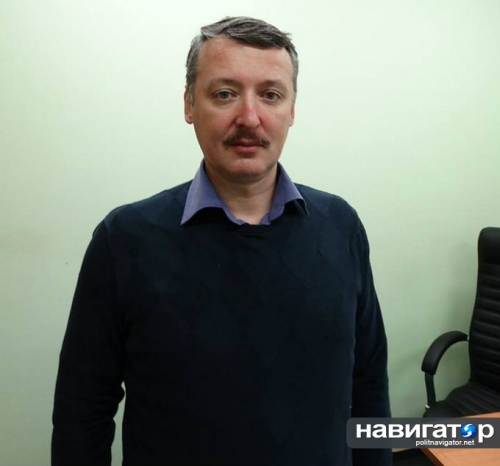
14:11 Publié dans Blog, Entretiens, Guerriers, Histoire européenne, Ukraine / Novorossiya | Lien permanent | Commentaires (0) | Tags : novorossia, novorossiya, donetsk, lugansk, ukraine, russie, igor strelkov, guerrier
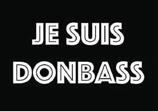
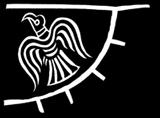

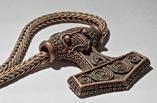

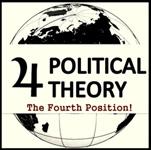




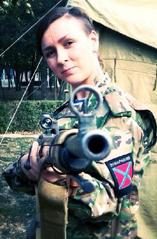

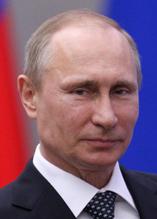
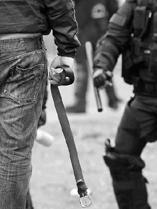
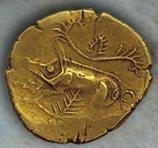
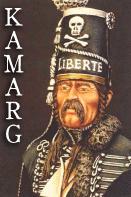
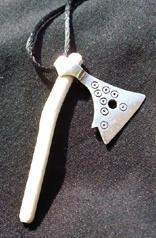





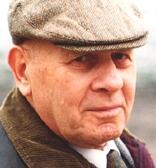
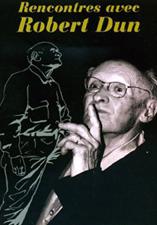
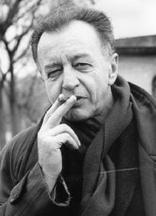

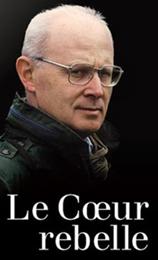
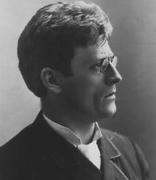
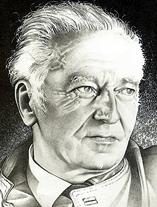

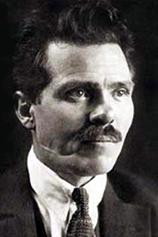
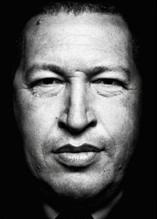
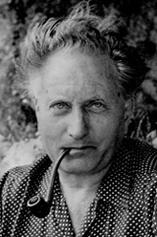
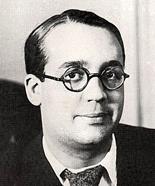
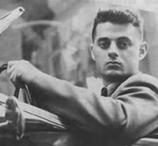
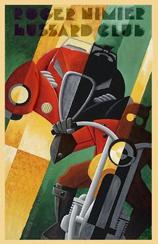
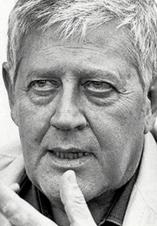
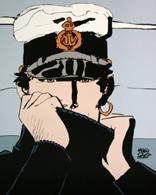
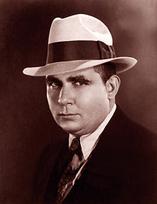

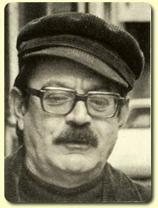
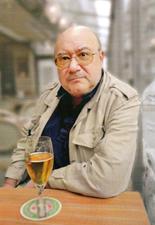
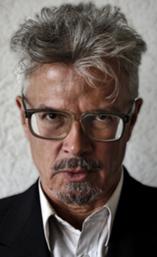


Les commentaires sont fermés.